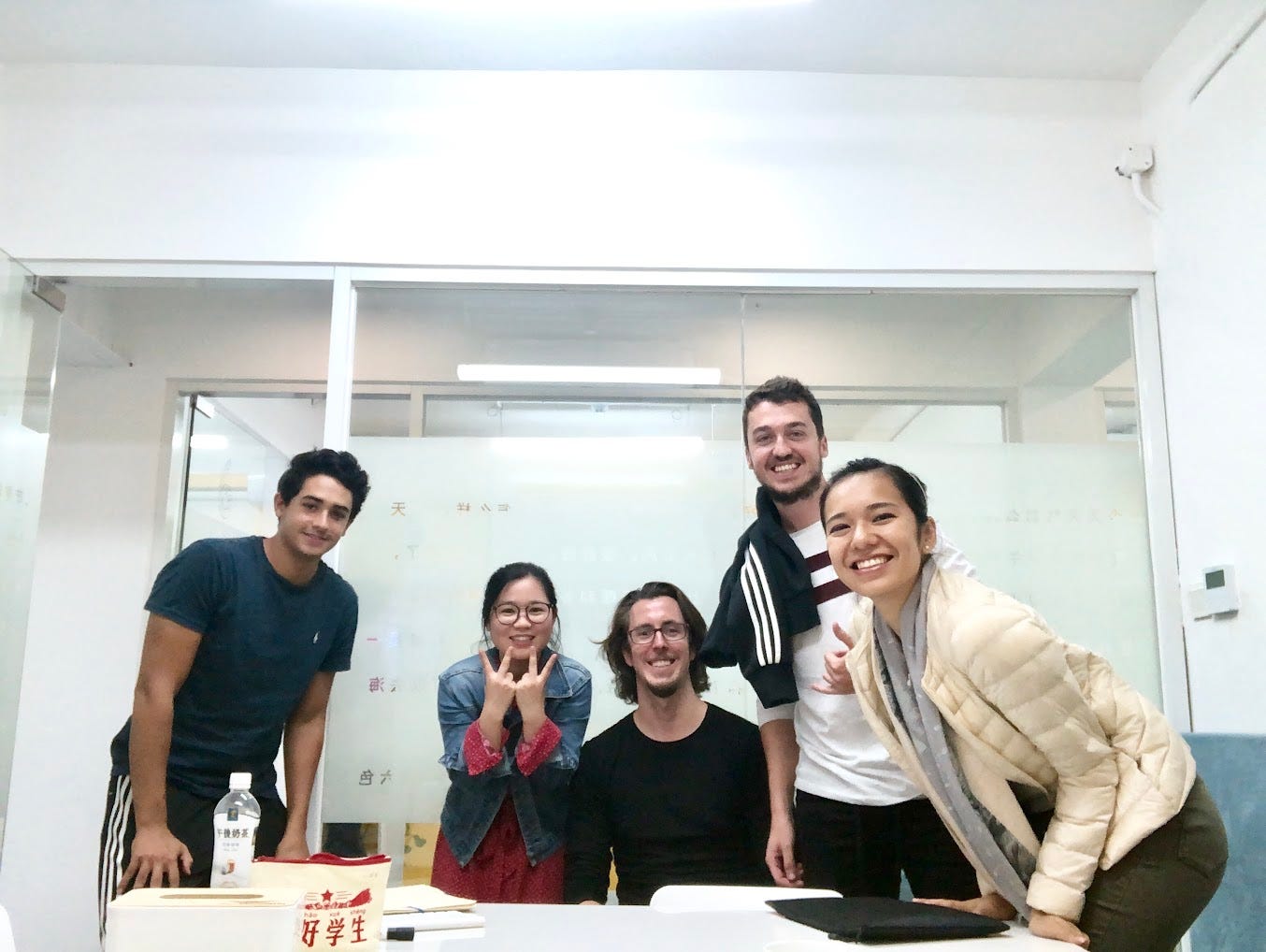
“It’s hard…”
“This language is stupid because…”
“Why did they make the language this way?”
These are some of the things that we say to ourselves when we’re learning a new language and becoming frustrated with the long and arduous process that it is, but what starts out as a recognition of the challenge can slowly become a handicap if we’re not mindful.
I started out learning Mandarin as anyone else would— with wide-eyed curiosity and big hopes to be able to communicate in Chinese. Spoiler alert, it didn’t happen, and to this day remains a humiliatingly humbling experience. Yes, language learning is hard, but I made it my entire identity while I was living in China.
But now looking back at the three years that I spent in Shanghai, I can see clearly what where I went wrong with my language learning journey. The following three points are confessions of what I did wrong and tips to help you get out of the mental rut that paralyzed me years ago.
Without further ago, here’s what I would change if I ever decided to take up Mandarin Chinese again:
1️⃣ Do not subscribe to the notion that a language is hard. Instead, tell yourself it’s stimulating. Then, when things become incomprehensible, tell yourself that you have to find a way that works for you.
The first thing I did wrong was almost immediately subscribe to the notion that Mandarin is one of the hardest languages ever to learn. The characters. The strokes. The tones. Its perceived difficulty is what drew me in but my constant reinforcement of that was also what defeated me. The worst part is that each time I got demotivated, I continued to reinforce the idea it was a hard language instead of saying “Okay, this is just another method that’s not working for me. This is not a reflection of my intelligence level, but it’s a reflection of what methods work and don’t work for me. What else can I try?”
What I did was beat myself up for not being able to absorb the information the way my peers did. I compared myself to my friends who could simply speak the language. What I didn’t realize back then is that their entire identity wasn’t wrapped up on their language abilities like mine was, so they were able to take it easy while learning. Guess what? The information stuck better that way. The real nugget of wisdom that I can impart here is that a language is only as hard as you make it in your head. Language learning becomes easier when you feel comfortable with your pace however slow it may be compared to others and truly enjoy it.
2️⃣ Remove your ego from it.
Honestly speaking, Mandarin was an ego project for me and it now makes sense to me as to why I failed so miserably at it. I didn’t really care about the culture and the people as much as I should have cared— all I wanted to prove to the world is how cool I was to be able to speak Mandarin. Some people do it that way, sure, but not me. I have to have a vested interest in the language and culture the way I did with Italian in the past (the poetry), Mongolian (to understand my kin better), French (to know my partner in his native language), and Arabic (again, for the poetry).
I did not have such vested interest in Mandarin— and it certainly showed. Even after having taken countless hours of classes and sitting down in front of the book or daring to speak to my Didi driver, I just couldn’t hack it. In other words, I was in it for the wrong reasons. I think everyone’s “right“ reasons look different, so this will be different for you, but my point here is that language learning can’t be a superficial ego trip to make yourself look cool. Language learning, at least for me, is first rooted in falling in love with some aspect of the language. Then that love carries you through with the humble willingness to try different and creative ways to hack it.
3️⃣ Throw the grammar book away. Focus on lexical patterns first.
Something I would 100 per cent do differently if I ever chose to Mandarin Chinese again is to not start with books. That’s where I personally went wrong. I know people who say they need to understand the structure first before they start speaking to people, but I beg to differ. Is that true or is that something we tell ourselves to postpone interacting with people as long as possible? Looking back, I would have benefited from listening to Mandarin Chinese interviews about topics that I like with the pinyin subtitles in order to begin observing patterns in the language.
If we think about how babies learn language, they don’t start with books. They start with listening to the environment around them since the moment they are born for about two years before they start uttering babbling noises that sound like the melodic patterns of our speech. The babies have then observed their immediate surroundings and the context in which mommy or daddy says certain phrases and words, with specific moods and facial expressions. THIS is what we have to replicated when we’re watching hours and hours of YouTube videos in our target language. We have to sponges and have the ego of a baby—nonexistent— that is.
In summary:
✅ Fall in love with the language and/or some aspect of the culture.
✅ Treat your target language as you would someone that you love— graciously. When things get hard, don’t tell them off about how difficult they are to understand. Rather, recommit yourself to finding a way that works.
✅ Take a break from the books and simply watch and take in the language through different media about things that YOU love in your target language. For example, if you like a specific movie, then watch a movie review in your target language.



